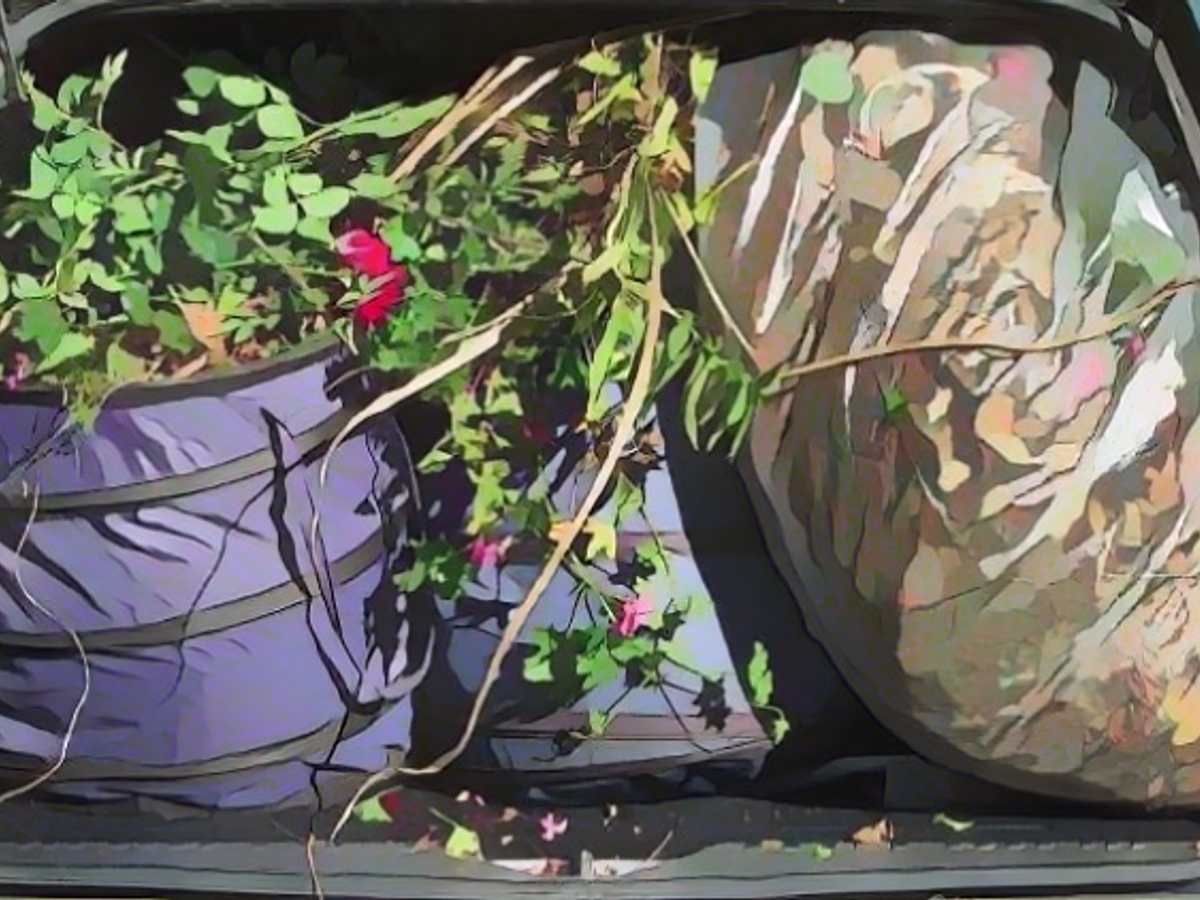Fall gardening tasks are plentiful once the trees shed their colorful attire. Preparing the garden for winter involves tackling towering piles of leaves and branches. However, it's essential not to dispose of waste irresponsibly for environmental reasons.
How to manage packaging and empty plant pots?
Plastic, aluminum, polystyrene, composite materials, and tinplate packaging, including empty plant pots and transport trays, should go into the yellow garbage can or bag. Paper and cardboard waste, like transport boxes, should be disposed of in the waste paper garbage can.
Leaves, planters, flower boxes, and other garden waste?
Damaged planters made of plastic, wood, or clay, as well as smaller gardening items like florist's wire or plant clips, end up in the residual waste. Fallen leaves and smaller branches should be composted or disposed of in the organic waste garbage can.
Fertilizers and pesticides: hazardous waste?
Never discard fertilizers and pesticides with household waste. If plastic packaging is empty, it goes into the yellow garbage can or bag, but be cautious if there's still residual liquid; don't pour it down the sink or toilet. Treat it as hazardous waste.
Real estate consulting and eco-friendly disposal suggestions
Real estate consultants advocate for sustainable methods like composting leaves instead of disposing of them. As conscientious tenants, adhere to your housing association's waste disposal guidelines to discard organic waste appropriately.
Maintain a sustainable garden waste management system by:
Disposing of empty plant pots and planters:
- Recycling: Check with your local recycling center to see if they accept plastic or ceramic planters.
- Reusing: Repurpose planters for different gardening needs or as decorative items if they're still in good condition.
- Composting: Biodegradable materials like wooden or bamboo planters can be composted, provided they're clean and free of contaminants.
Disposing of fertilizers and pesticides:
- Proper Storage: Store fertilizers and pesticides in their original containers, sealed tightly, and out of children and pets' reach.
- Return or Dispose: Unused fertilizers and pesticides should either return them to the store or dispose of them through a hazardous waste collection program. Your community might have designated collection days.
- Composting: Organic fertilizers like compost or manure tea are suitable for the garden. However, avoid composting chemical-based fertilizers and pesticides as they harm the environment and contaminate the soil.
Additional tips:
- Composting: Create a compost pile from kitchen scraps, yard waste, and plant residues to minimize the use of chemical fertilizers and maintain soil health.
- Repurpose: Instead of buying new items, reuse cardboard tubes, newspaper, and old kitchen tools for gardening purposes.
- Recycled Mulch: Use recycled materials like wood chips, cocoa hulls, or other organic mulches to improve soil health and reduce waste.
Adopting these eco-friendly methods can significantly reduce your garden's environmental impact while maintaining a sustainable practice.








